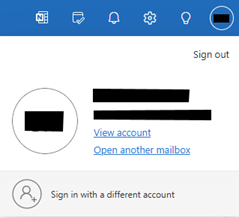 Figure 1 - The option to create a shared Bookings page
Figure 1 - The option to create a shared Bookings pageTL;DR: Allowing end users to create accounts in Entra, as Microsoft Bookings does by default, poses significant security risks. An attacker could potentially:
Microsoft Bookings includes a feature to create “ Shared Booking Pages,” enabled by default for users assigned an appropriate Microsoft 365 licence. To check if you’re licensed, visit Bookings in Outlook.
 Figure 1 - The option to create a shared Bookings page
Figure 1 - The option to create a shared Bookings page
Behind the scenes, the feature operates in a way that could make it very useful for adversaries who have compromised the Microsoft 365 account of a user in an organisation.
Imagine a scenario where an adversary has phished a Microsoft 365 user and gained access to their account. In most business email compromise situations, the attacker may well communicate with internal and external parties using the identity of the compromised user, and will use information from existing email communications to try to gain financial advantage or improve their positioning on the network. Depending on which user has been compromised, this can be impactful, but often the compromised user may have limited rights or power in the business.
Where Shared Bookings pages are enabled, the adversary suddenly has better options available to them. Using the features in the Shared Bookings pages, the attacker can create a very convincing impersonation of another identity in the compromised tenant and use this to good effect. For example, having compromised a low privileged worker, they may be able to create an internal email address that convincingly impersonates the CEO and can then email other members of staff passing instructions for the transfer of funds, bypassing impersonation filters. There’s also the potential for an adversary to create “special” email addresses inside the domain (think “admin@” or “hostmaster@”) which might allow for very convincing social engineering of external parties aimed at the transfer of infrastructure control.
The impact of misuse of these features is difficult to quantify and will depend on circumstances, but as with all features, leaving this functionality enabled when it’s not required expands your attack surface area; if you’re not using Shared Bookings, disabling this feature is recommended.
For a step-by-step breakdown of the “weaknesses” see below.
When a user creates a shared Booking page, it generates a fully-fledged account in Entra—created by an end user without administrative permissions.
The account:
FirstnameSurname@<tenantdefaultmaildomain>).An attacker could impersonate legitimate users by:
geoffjones@cyberis.com - that mimics the legitimate address geoff.jones@cyberis.com.This makes internal phishing (i.e. from an account that has been compromised) and lateral movement attacks significantly easier and harder to detect. These attacks would bypass Microsoft’s impersonation detection mechanisms, as they would be coming from a legitimate Exchange mailbox.
 Figure 2 - Side by side comparison of a genuine email vs an impersonated email from a shared Bookings page
Figure 2 - Side by side comparison of a genuine email vs an impersonated email from a shared Bookings page
The mailbox associated with the Booking page:
 Figure 3 - ‘Opening another mailbox’
Figure 3 - ‘Opening another mailbox’
An attacker could exploit this to impersonate a CEO, manager, or finance department and send outbound emails. An attacker for example could target customers to redirect payments to their own bank account by impersonating legitimate businesses invoices.
It is possible to create Booking pages matching email addresses of former employees.
For instance:
joebloggs@cyberis.com.Creating shared Booking pages provides a hidden, fully functional mailbox that does not consume a Microsoft 365 licence.
Steps:
The mailbox:
We recommend the following steps to identify and address the issue:
Use ExchangeOnline PowerShell to identify hidden mailboxes created by shared Booking pages.
```plaintext hljs plaintext PS C:\Users\user> Get-Mailbox

#### 2\. Restrict Bookings Access
Disable the ability for end users to create shared Booking pages unless absolutely necessary.
```plaintext hljs plaintext
PS C:\Users\user> Connect-ExchangeOnline
PS C:\Users\user> set-OrganizationConfig -BookingsEnabled $false
Set up alerts for unusual account creation activity.
Regularly audit mailbox permissions for and remove unnecessary delegate access.
To mitigate risks of email impersonation and hijacking, ensure that high-value email addresses commonly used for domain or service validation are claimed and associated with an administrator-controlled account in your tenant. Examples of these addresses include:
plaintext hljs plaintext
administrator@your_domain_name
hostmaster@your_domain_name
postmaster@your_domain_name
webmaster@your_domain_name
admin@your_domain_name
root@your_domain_name
At Cyberis, we take a proactive approach to identifying security vulnerabilities that could impact organisations using widely adopted tools like Microsoft Bookings. These findings highlight the importance of rigorous security configuration and monitoring within your Microsoft 365 environment.
If you need assistance mitigating risks or enhancing your organisation’s security posture, please get in touch with our team.
Our experienced team will identify and address your most critical information security concerns.